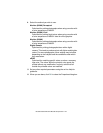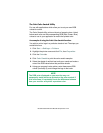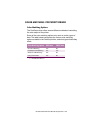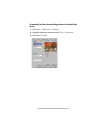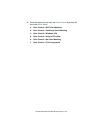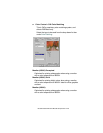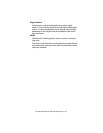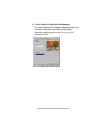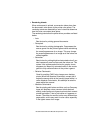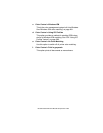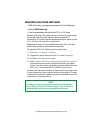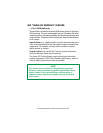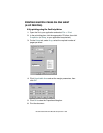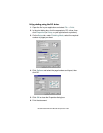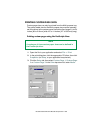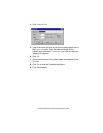ES 3037/3037e Windows Me/98/95 Operation • 279
• Rendering Intents
When a document is printed, a conversion takes place from
the document’s color space to the printer color space. The
rendering intents are essentially a set of rules that determine
how this color conversion takes place.
The rendering intents that the printer driver provides are listed
below:
–Auto
Best choice for printing general documents.
– Perceptual
Best choice for printing photographs. Compresses the
source gamut into the printer's gamut while maintaining
the overall appearance of an image. This may change
the overall appearance of an image as all the colors are
shifted together.
– Saturation
Best choice for printing bright and saturated colors if you
don't necessarily care how accurate the colors are. This
makes it the recommended choice for graphs, charts,
diagrams etc. Maps fully saturated colors in the source
gamut to fully saturated colors in the printer's gamut.
– Relative Colorimetric
Good for proofing CMYK color images on a desktop
printer. Much like Absolute Colorimetric, except that it
scales the source white to the (usually) paper white; i.e.
unlike Absolute Colorimetric, this attempts to take the
paper white into account.
– Absolute Colorimetric
Best for printing solid colors and tints, such as Company
logos etc. Matches colors common to both devices
exactly, and clips the out of gamut colors to their nearest
printed equivalent. Tries to print white as it appears on
screen. The white of a monitor is often very different from
paper white, so this may result in color casts, especially
in the lighter areas of an image.



